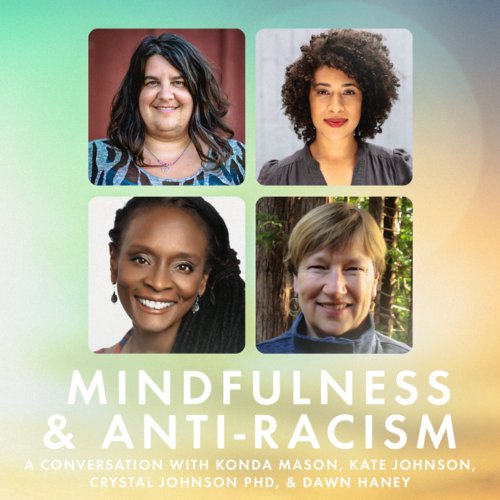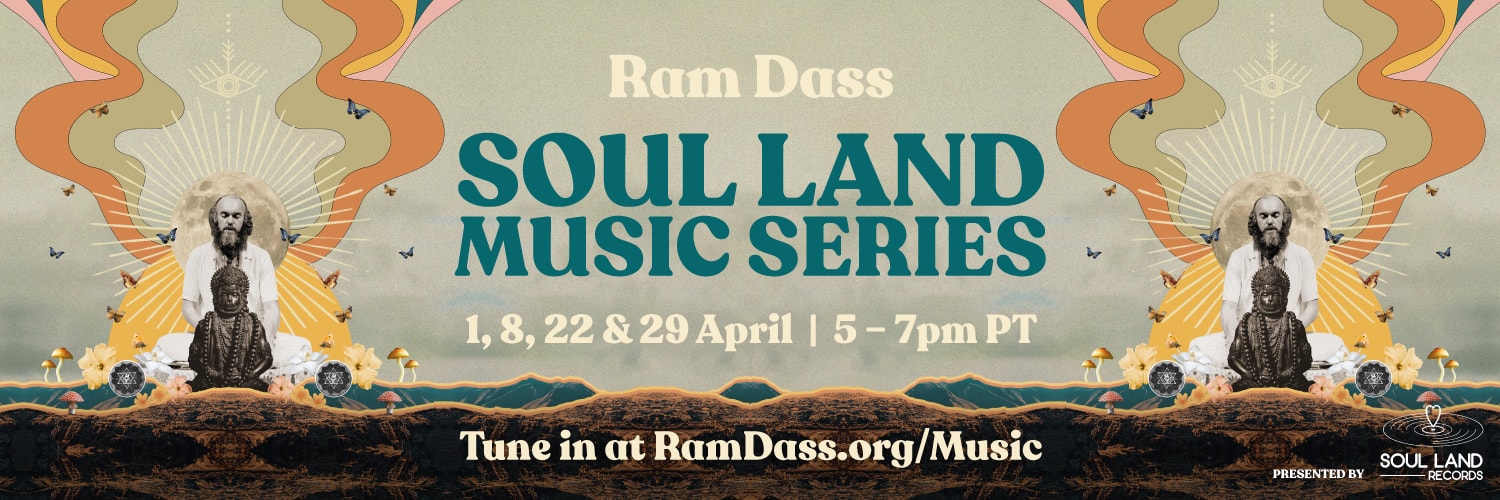
Konda Mason, Kate Johnson, Crystal Johnson PhD, & Dawn Haney discuss their experience bringing anti-racism work to mindfulness teacher trainings.
Kate Johnson is a Buddhist meditation teacher, writer, dancer, and mom who loves integrating embodiment, justice, and the practice of wise relationship in all of her work. She leads courses and retreats integrating somatic movement, social justice, creativity, and the practice of wise relationships. She is the author of the book Radical Friendship: Seven Ways to Love Yourself and Find Your People in an Unjust World. For more info, check out at www.katejohnson.com
Crystal Johnson PhD is a retired clinical psychologist and a Community Teacher at the East Bay Meditation Center (EBMC) in Oakland, CA, where she also serves on the Leadership Sangha (Board) and as a member of the Radical Inclusivity Committee. In her teaching, she focuses on creating/co-creating programs for white dharma practitioners seeking to build awareness, knowledge and skills to challenge the dynamics of white privilege and race-based oppression, and create truly inclusive sangha.
Dawn Haney is a teacher, coach, and consultant committed to helping communities and organizations how to navigate change while attending to dynamic of identity and power. They braid together wisdom from Buddhism, social justice, and psychology traditions and alchemize this with their own experiences as a white, fat, queer, chronically ill, nonbinary femme to support individual and community change through social movements, from migrant justice to fat liberation. More info at DawnHaney.net
DEIA Training // Healing Beyond Terminology
Konda Mason, along with Kate Johnson, Crystal Johnson & Dawn Haney explore the inception of their Diversity Equity Inclusion Accessibility (DEIA) Program – the revolutionary addition to Tara Brach’s and Jack Kornfield’s Mindfulness Meditation Teacher Certification Program. To begin, they dive beneath the language to the true inner meaning behind the words diversity, equity, inclusion, and accessibility.
“Not all [DEIA trainings] invite a deep reflection on our own identity, social location and lived experience. Some of them are just spewing a bunch of data or facts on top of what has often been tremendous harm. So part of what I’m interested in is not only how do we learn what not to say in order to offend people, but how do we heal? How do we heal ourselves? How do we heal our relationships?” – Kate Johnson
Omid Safi & Simran Jeet Singh explore anti-racism as a spiritual perspective, on Ep. 21 of Sufi Heart
Whiteness & Sangha // Mindfulness & Anti-Racism (26:00)
Looking back on the various modules which they taught in their DEIA program, Konda invites the group to share their experience in teaching the material, and dive into the meaningful topics which were discussed.
“Mindfulness as a practice, for me, helps take a look at my own experiences in white supremacy culture. It’s not just something out there that other people are doing. It’s actually, ‘How am I participating in it day by day?’ And that, to me, is part of the incredible work that is possible when you actually put mindfulness practice and apply that to facing racism and white supremacy culture.” – Dawn Haney
From here, Crystal discusses the nuances of training a mostly-white sangha about internalized whiteness and white supremacy culture; Dawn shares on why mindfulness communities are ripe for anti-racism work; and Kate shares a story of blatant racism within a “mindful” sangha.
“We’re not just trying to inform people there is systemic racism; we’re trying to convey that you’ve been raised up in this process. You have been created as a white person, and you have been taught to behave in ways that are quite harmful to others without necessarily you realizing. Waking up to that is painful. So you have to be prepared to realize, ‘It’s not like they told me it was,’ and ‘I’m not aware of these ways that I’m harming; I need to be aware.'” – Crystal Johnson
Konda Mason & Jakada Imani discuss an ethical framework for racial justice, on Ep. 2 of the Brown Rice Hour
Oppression, Identity, & Belonging // Me to We Liberation (50:00)
Exploring the four levels of race-based oppression—institutional/systemic, cultural, interpersonal, and internalized—Konda prompts the group to highlight how subtle, unconscious, and deep-seated racism truly is. Contemplating a passage from Ruth King, they explore racial affinity groups, fitting in, and the “meaningful contradiction” of identity. In closing, Konda shares the importance the mindfulness community shifting from ‘me liberation’ to ‘we liberation.’
“As long as we’re going around it—this is what we’ve been doing for 400 years—going around the issue and not really going through and dealing. And as we do, on the other side is liberation. That’s what people don’t get. People feel like they’re gonna have to lose something or give up something. Yeah, you’re gonna give up something: you’re gonna get rid of your chains.” – Konda Mason

